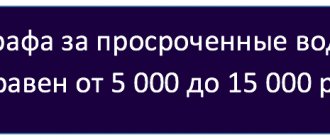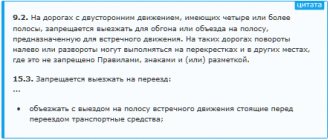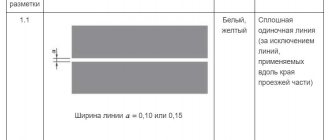Spilling and taking intoxicating potions in areas frequented by many people has been considered illegal for a long time. However, not all citizens are familiar with where exactly it is prohibited to drink a bottle of alcohol, and what products are equated to such a potion.
While walking in other recreation areas, you can see people pouring beer, wine and even vodka. Not every citizen enjoys watching this - some try to make a remark, others silently pass by. At the same time, not everyone is aware that the violator can be fined for spilling and taking a potion in places where vacationers gather.
Law on drinking alcohol in public places
The legislative norm regulating the sale and drinking of alcohol is Law No. 171-FZ of November 22, 1995. The law displays a list of drinks classified as intoxicating, and also displays points where their sale and consumption is prohibited.
Thus, it is prohibited to take an intoxicating potion:
- In areas adjacent to educational institutions. These are school and preschool institutions, as well as colleges and universities. At the same time, the territories of such institutions include not only premises, but also areas where students are accommodated (sports and play areas, parks, etc.).
- At sports complexes.
- In public vehicle parking lots and in public transport (subway, trains, trams, buses, trolleybuses, etc.).
- On trains, on planes, as well as on boats and ships. At these points, drinking the intoxicating potion is allowed only at common meal points (in the dining car, in the dining room, etc.).
- In parking lots and gas stations.
- In markets, except for wine products made by farmers and other agricultural producers.
- At military facilities and units.
- At train stations, at airports (except for public catering premises).
- In city squares during holiday periods, at meetings, celebrations, demonstrations, etc.
In the listed places, not only the sale of intoxicating liquor is prohibited, but also its consumption.
In addition, it is prohibited to take intoxicating drinks:
- On the streets, including in zones around residential buildings, in areas for children.
- In the entrances of multi-storey buildings, in elevators.
Note : The concept of the term “public place” is not specified by regulations, although the term is used in many paragraphs of the Code of Administrative Offenses and the Criminal Code. Taking into account the practice of judicial structures and the rules of terminology, it is possible to include areas with many people in them as public places.
Not everywhere
Does the law allow drinking beer on the street and in the yard? To say the truth, no. As already mentioned, you do not have the right to drink alcoholic beverages, as well as psychotropic and intoxicating drugs in public places. But there are some exceptions. More precisely, it is one.
The thing is that alcohol can be taken in a variety of cafes and restaurants. In other words, drinking it is possible within the boundaries of the public organization that sold it to you. But here it is important that this is not just a store, but a catering industry.
So in a club, restaurant or cafe you have every right to drink alcohol. But is it possible to drink beer on the street? According to modern legislation, you do not have this opportunity. More precisely, it exists, but you will act at your own peril and risk. If you are caught, you will have to suffer some punishment.
What drinks are considered alcoholic?
Today's market offers many different tonic potions, and not all people are able to figure out which potion is equivalent to an intoxicating one. The law No. 171-FZ of November 22, 1995 clearly states which drink is considered intoxicating. The specified act refers to the category of alcoholic product:
- Wine, champagne wines.
- Beer, alcoholic cocktails, as well as mash, cider, mead.
- Vodka, whiskey, cognac, tequila, other liqueurs.
- Any potion containing alcohol, prepared for consumption.
Intoxicating drinks prepared by handicraft methods, as well as those not used for internal consumption, including lotions, colognes and other intoxicants containing alcohol, are equated to unlawful acts regulated by Art. 20.20 of the Code of Administrative Offenses, and persons who produce such drink and drink it are subject to financial penalties.
What counts?
Law No. 171-FZ of November 22, 1995 defines what is considered an alcoholic beverage.
The list includes:
- vodka, cognac;
- wine (fruit, liqueur, champagne);
- beer;
- cider;
- poire;
- mead.
The named products contain more than 0.5% ethyl alcohol.
Decree of the Government of the Russian Federation dated November 9, 2017 No. 1344 contains exceptions to the rule.
Products containing more than 0.5% alcohol are not classified as alcohol:
- jam, puree, sauces;
- berry and fruit syrups;
- spices;
- confectionery;
- kvass and other fermented drinks;
- fermented milk products (except for cottage cheese);
- aroma-forming substances of natural composition;
- liquids made from spicy and aromatic raw materials;
- ice cream, sherbet, sweet ice;
- sausage.
The question of which list to include liquids prepared by homemade methods (moonshine, homemade wine) has not been resolved. Often drink cologne, perfume or lotion that is not food grade. In practice, this is recognized as a violation.
Which place is public
As stated earlier, the term “public places” is not defined by regulations. At the same time, based on Law No. 171-FZ, it can be considered that the displayed list of places in the document that does not allow the consumption of intoxicating potions is equated to public places. Therefore, it is proposed to consider them as follows:
- General educational institutions:
- Schools.
- University(s).
- Lyceums.
- Schools.
- Other organizations in the educational and educational sphere.
- Hospitals, clinics, dispensaries and other medical institutions.
- Markets for the sale of consumer products.
- All stops, gas stations, trains, including metro, sports areas (stadiums, ice skating rinks, etc.).
- Airports and train stations.
- Military units.
- Territories with multiple presence of people (rallies, meetings, pickets, processions, other similar points).
- Entrances of housing construction, elevators, staircases and other areas of housing construction.
- Local areas and areas for children.
- General areas:
- Parks.
- Squares.
- Reservoirs.
- Forest park areas.
- Sanatoriums and boarding houses.
In a number of these areas, it is allowed to organize converted points for the sale and reception of intoxicating potions. This applies to airports and train stations where there are cafeterias and buffets.
At all the points listed above, the sale and bottling of intoxicating potion is not permitted. If a person does not even drink intoxicating drinks at these points, but only appears drunk, law enforcement officers will issue him a fine.
Consequences of being found guilty
If a person is held accountable, this leads to negative consequences:
- criminal prosecution under Art. 314.1 of the Criminal Code of the Russian Federation for those released from prison;
- imprisonment if the offender is on probation or has limited freedom;
- refusal of employment in the police, security organizations, educational institutions;
- deprivation of the right to early expungement of a criminal record.
What determines the size of the fine?
Control over the consumption of alcohol in public places is the responsibility of the police.
The duty of employees of the Ministry of Internal Affairs includes patrolling public areas, identifying retail outlets for alcohol and its spillage. Signs of illegal measures for drinking alcohol may include the presence of dishes with chopped snacks, redness of a person’s face when drinking alcohol, shiny eyes, increased talkativeness, and in some circumstances, aggressive behavior of a person. If persons are found taking intoxicating liquor, police officers must fill out a protocol on administrative misconduct with the delivery of the offender to the police station, the seizure of alcohol and the signatures of witnesses.
The offender who took intoxicating drugs in an unauthorized place will be issued a fine ranging from 500 to 1,500 rubles. The amount of the penalty depends on whether the citizen previously committed a similar illegal act, whether he realized his guilt, as well as on a number of other circumstances.
If the offender repents and promises not to take the intoxicating potion again in crowded places, then he can only be given a warning.
If a person is detained in an overly drunken state, then such actions will be considered by the Code of Administrative Offenses of the Russian Federation, which regulates the following punishment:
In this option, the citizen simultaneously violates 2 articles of the Code of Administrative Offenses of the Russian Federation, and for each of them he will be issued a penalty:
- According to Art. 20.20 Code of Administrative Offenses of the Russian Federation:
- For taking an intoxicating potion at points not permitted by law, the fine ranges from 500 to 1,500 rubles.
- For taking drugs or psychotropic potions without a doctor's note, from 4,000 to 5,000 rubles or imprisonment for up to 15 days.
- The same offenses for foreigners will result in the same financial punishment of 4,000 to 5,000 rubles or imprisonment for up to 15 days, or deportation from the country.
- According to Art. 20.21 Code of Administrative Offenses of the Russian Federation:
- For a person visiting a public point “under the fly”, a penalty equal to 500 to 1500 rubles is assessed (Law No. 116-FZ of June 22, 2007 and No. 365-FZ of December 21, 2013).
A protocol on unlawful actions is drawn up by police officers under both articles of the Code of Administrative Offenses.
Deadlines for payment of monetary penalties
If a citizen has been fined for taking an intoxicating potion, then within 10 days he has the right to challenge the decision if he believes that he was punished unlawfully by contacting a higher structure or the district judicial structure at the place of the proceedings.
After the completion of the specified time, the decision on an unlawful offense receives the status of legal force. In accordance with Part 1 of Art. 32.2 of the Code of Administrative Offenses of the Russian Federation, the violator is obliged to:
Pay the fine no later than 60 days from the date of receipt of the resolution, with the exception of the circumstances reflected in Part 1.1 of the noted article, or from the end date of the deferment or installment plan, which are regulated by Art. 31.5 Code of Administrative Offences.
Part 5 art. 32.2 of the Code of Administrative Offenses regulates that in the absence of payment of a fine or information about the repayment of this debt in information resources about payments, at the end of the time set out in Part 1 or 1.1 of the noted article, the judge, institution, official who imposed the penalty, sends a second copy of the resolution no later than 10 days (and under the circumstances reflected in part 1.1 of this article, for one day) to the bailiff for forced repayment of the debt in accordance with the legislation of the Russian Federation.
An alternative method of punishment for late repayment of debt may be imprisonment for up to 15 days.
Non-alcoholic
Is it possible to drink non-alcoholic beer on the street? This question also interests many. Especially those who generally do not drink alcohol. Should such citizens have anything to fear?
The question is difficult. On the one hand, drinking beer is, in principle, prohibited in public places. Just like any other alcohol. This means that there is every reason to believe that they have every right to punish you, in accordance with the legislation of the Russian Federation. On the other hand, we are talking only about alcohol. It is allowed to drink non-alcoholic drinks on the street. So you have to constantly think about how to behave.
In general, you have every right to drink non-alcoholic beer in a public place. But if they come up to you with a check, you shouldn’t refuse. Moreover, you need to be honest about what kind of drink you drink. No one has the right to fine you for this. However, it is recommended to avoid drinking even non-alcoholic beer in crowded places. After all, no one needs unnecessary showdowns, and they will most likely happen if the attention of law enforcement agencies falls on you.
How to pay a fine for drinking alcohol in a public place?
If you receive a decision on a financial penalty for taking an intoxicating potion in places where drinking is not allowed, the offender will need to pay it no later than 60 days from the date of receipt of the document, otherwise more stringent measures will be taken against him, up to and including imprisonment for up to 15 days. To pay off a fine, today’s banking system provides the opportunity to transfer funds in various ways:
- The oldest and simplest is to visit any bank branch, present the fine to the cashier and pay the collection amount, taking into account the bank’s commission. After transferring the money, the cashier will give the payer a receipt for payment of the fine. Next, you need to make a copy of the payment slip and send it by registered mail to the police (the address can be found in the collection order form), or bring this copy there with your own hand. The original receipt must be kept for one year.
- Recently, services provided through terminals and ATMs, which can be found in many bank branches and other institutions, have become increasingly popular. Thanks to a clear interface with the fine repayment operation, here any payer will be able to pay the fine by clicking on the “Payment of fines” section and answering the questions displayed on the monitor of these devices.
- It is also possible to pay off fine debt via the Internet, using various services, by registering on the appropriate sites.
The most popular are:
- Sberbank-Online service
- Portal "Government services"
- Electronic wallets: Yandex-money, QIWI, Web Money.
To use Internet resources, you must have a bank card from which money will be withdrawn, since transferring funds via the Internet is only possible by bank transfer.
For any form of repayment of a fine, the payer will receive a receipt for repayment of the debt, a copy of which must be provided to the police so that the payment is recorded there, and for insurance, keep the original receipt for a year.
Is it possible to avoid paying a fine for drinking alcohol in a public place?
Nowadays, people’s financial situation does not allow them to relax with a bottle of beer in a bar to relieve stress, and most often they head to a park or square, fortunately, they can buy intoxicating drinks there much cheaper.
Thus, he commits illegal actions, subject to the threat of punishment. How can you avoid a fine in this case? Here are some tips that can help you avoid penalties when drinking a bottle of alcoholic potion in the company of colleagues while sitting on a bench alone:
- Disguise the bottle in a bag.
- Drink using an opaque plastic cup.
- You can pour the potion into a bottle with a sparkling water label.
Thus, the simple tips given can allow a person to sit in the park over a bottle of alcohol and not get punished. To do this, you need to behave decently, otherwise, if a person gets drunk to the point of insanity, the police will be forced to take him to the police station with the corresponding consequences.
How to Avoid Responsibility
You can avoid liability only by refusing to drink alcohol while in a place not intended for the consumption of alcoholic beverages.
However, many drinkers in park areas share their secrets. Among the most common options is pouring alcohol into containers, for example, from lemonade, or hiding it in opaque bags. However, this method will not protect you from a fine. If a police officer discovers that a person is drunk, he may conduct a search with the participation of witnesses and videotaping. In addition, it is possible to order an examination of the liquid. In such a situation, a person will still be held accountable under the law.
The main rule is to respect the limits of decency, then it is possible to avoid a fine if a warning has not yet been issued.











